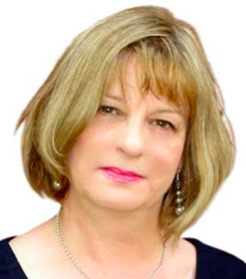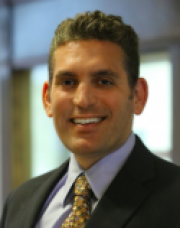Journalist / Associate Editor
Mentor, Julie DelCour
 Julie is an award-winning print journalist inducted into the Oklahoma Journalism Hall of Fame in 2015. She spent all but four years of her career in journalism with the Tulsa World where she worked for thirty-nine years. The first half of her career at the paper largely was spent as a beat reporter covering judicial matters in local, state and federal courts, including three years as the lead reporter on the investigation of the Oklahoma City bombing, the trials of the two defendants and the execution of one defendant. Throughout her career she also contributed freelance articles to national publications, including the New York Times, Time, Newsweek and the National Law Journal, and a variety of local and regional publications. In 1998, she was named to the Editorial Department, and in 2007, Julie became one of the newspaper’s first two women Associate Editors. In the Editorial Department, she wrote opinion pieces on a wide spectrum of subjects including prison reform, environmental issues, education, state/local/federal government, legislative issues, child abuse, domestic violence, mental health, crime and the justice system.
Julie is an award-winning print journalist inducted into the Oklahoma Journalism Hall of Fame in 2015. She spent all but four years of her career in journalism with the Tulsa World where she worked for thirty-nine years. The first half of her career at the paper largely was spent as a beat reporter covering judicial matters in local, state and federal courts, including three years as the lead reporter on the investigation of the Oklahoma City bombing, the trials of the two defendants and the execution of one defendant. Throughout her career she also contributed freelance articles to national publications, including the New York Times, Time, Newsweek and the National Law Journal, and a variety of local and regional publications. In 1998, she was named to the Editorial Department, and in 2007, Julie became one of the newspaper’s first two women Associate Editors. In the Editorial Department, she wrote opinion pieces on a wide spectrum of subjects including prison reform, environmental issues, education, state/local/federal government, legislative issues, child abuse, domestic violence, mental health, crime and the justice system.
Julie has received many awards over her long career including the Oklahoma Bar Association’s Liberty Bell Award given to non-lawyers for shedding light on matters regarding the legal system, Newsmaker of the Year from the Association of Women in Communications and the YWCA’s 100 Women With Moxie, awarded to Tulsa women who were trailblazers and “did things regardless of whether they are easy to do or not”. She received national recognition for her coverage of the Oklahoma City bombing investigation and trials, the Associated Press’ top honor for public service reporting of the Tar Creek environmental disaster and the Oklahoma Press Association’s top award in 2015 for writing and community service. She has also been a mentor to many young reporters, helping them advance their careers. Julie has a Bachelor of Journalism Degree from the University of Missouri School of Journalism, which is recognized as one of the top three journalism programs in the U.S.
In her article, Julie talks about what it is like to be a beat reporter, including the pressure writers are under to meet deadlines and how that pressure teaches efficient writing. She also discusses the variety of news stories she has covered. That variety is one of the things she liked most about her career in journalism — never knowing from day to day what she would be covering. Julie also discusses the changes taking place in print journalism as more news articles are now being published on the Internet rather than in traditional newspapers. This means that breaking news stories are being published 24/7 rather than waiting for a deadline when a newspaper can be printed and then circulated. She also points out that the declining circulation of newspapers and the declining viewership of network news do not signal a lack of opportunity for a journalism career. These changes only mean that young people considering a career in journalism today must learn the kinds of communication skills that will make them successful in an evolving environment. And, despite the changes in the way the news is delivered to the public, she points out the fundamentals remain the same. Journalists still need to be able to do good research, write efficiently, be able to perform the critical thinking necessary to write a good news story and to have the diligence to become instant “experts” on any subject they encounter.
Julie’s article will be of interest to anyone who wants to learn more about what you must do to be a successful journalist including how to set career goals. She also talks about the kinds of jobs you should reasonably expect to be able to get with a journalism degree as well as some of the other related careers such as public relations, advertising and communications where a journalism degree would also be valuable. Because job satisfaction is high, there is intense competition for positions in journalism. The preparation you need to do to be successful and her tips on finding a job in this competitive environment are things anyone considering a career in journalism should know.
Overview
I grew up in Waynesville, Missouri, a small town of about five thousand in the heart of the Ozarks. Waynesville is near Fort Leonard Wood and some of the Army personnel lived off the base. Because these people had lived all over the world, I was exposed to a culturally diverse environment. When I was in high school, I found that I was good at writing, and from the time I was sixteen I knew I wanted to be a journalist. When it was time to choose a college, my parents thought I should attend a small liberal arts college nearby. But I did my homework and discovered that the University of Missouri had the first, and one of the three best journalism programs in the U.S. I went ahead and applied on my own. I was accepted and also received a scholarship. This made it hard for my parents to refuse my chance to go to Mizzou. It was a large university with twenty-two thousand students and was a big change for someone like me who had grown up in a town only one-fifth that size.
The first two years I took my basics, including science, economics, political science, history, English and the humanities. I also completed fifteen hours of Spanish, fulfilling my foreign language requirement, and went on to complete the equivalent of a minor in Spanish. The in-depth journalism curriculum began my junior year. When I graduated in 1973, the political scandal known as Watergate and its investigation were in the news leading to the resignation a year later of President Richard M. Nixon. The Washington Post investigative reporters, Bob Woodward and Carl Bernstein, who had broken that story, gave a lot of visibility and viability to journalism. As a result, many students had chosen journalism as a college major. The phenomenon was much like the popularity of the television program CSI, which attracted more people to the field of forensics. When I graduated, I thought there were too many graduates looking for jobs in journalism. My plan was to work briefly on a newspaper and then return that fall to MU for a Master’s Degree in Journalism. I hoped that the advanced degree would help me crack into an over-saturated market. That summer I took an internship at the Springfield, Mo., Leader-Press, an afternoon newspaper. The Leader-Press was independently owned, and was of middle-market size with some of the best journalists in Missouri. My first beat was covering county government. The paper had two deadlines for its two editions, one at 11:00 in the morning and the second, an hour later at 12:30. Nothing much started happening at the county courthouse until 10 o’clock, which put me under daily pressure to meet my deadlines. At 22, I frequently found myself running the three blocks from the courthouse to my newspaper — in high heels and a mini skirt — to be able to write my articles in an hour, or sometimes less. It was baptism by fire, with the time constraints teaching me how to be an efficient writer and a quick study. This early training helped me meet tight deadlines throughout my reporting career but none more so than during coverage of the Oklahoma City bombing investigation and trials. It was on this three-year assignment that I encountered intense national competition, trying conditions and complicated subject matter. Over the course of 500-plus articles I never missed a deadline.
After I had worked at the Springfield Leader-Press for six weeks, the executive editor sat me down and asked why I wanted to get a Master’s Degree when his team of experienced editors and reporters could teach me everything I needed to know to be a good reporter. He convinced me to stay, and I went on to cover several beats, learn news photography and editing skills. During those years, I met many interesting people such as Roy Blunt, then the county clerk, who later became a U.S. Senator, and worked alongside journalists who later became distinguished journalists at large newspapers and magazines. But, after four years, I wanted to make more money and live in a larger metropolitan area so I took a job in St. Louis with the communications department at Monsanto. One of the many chemicals the company produced was used in toothpaste. Among my first assignments was to write articles on toothpaste and get them placed in magazines, and later I began to learn about the company’s other divisions, doing a variety of science-writing assignments. These articles had to be circulated among a dozen or more chemists and product managers and frequently came back with technical jargon, comments and additions that I thought made the articles pedantic and less readable to the general public. After only a couple of months, I knew that I had made a mistake, and starting looking for another job in my first love, newspapers. I applied at the major morning newspaper in St. Louis and was offered an editing job. As a young woman, however, I didn’t like the idea of having to walk to my car at 2 a.m. in the middle of a high-crime downtown area. I received another offer at the Post-Dispatch, the other major St. Louis daily newspaper, but the job was in the suburban bureau and offered limited advancement. I had an interest in the law from doing earlier courthouse reporting, and I decided that going to law school might provide a more lucrative and secure future. After nine months at Monsanto, I found a job at the Tulsa World, and planned on going to law school part time at the University of Tulsa. I never entered law school, however, because I fell in love with covering state courts, and later federal courts. There is a saying that at one time or another everyone passes through the courthouse for some reason — that the justice system provides a window into the community. I liked the variety of cases I was able to report on, the people who were involved and the legal issues that were presented to the court. It was my experience covering the federal courts that landed me the three-year assignment of covering the 1995 Alfred P. Murrah Federal Building bombing in Oklahoma City, and the trials in Denver of the two defendants. Before covering courts, I also worked other beats including business, higher education, city and county government and crime reporting.
After eighteen years as a beat reporter, Ken Neal, the Tulsa World Editorial Pages Editor, asked me to join his department, writing editorials and a Sunday opinion column. It was a big change for me to express my opinion in editorials and columns. As a reporter, two rules are the most important: to be accurate and to make sure you remain objective. But I made the transition and liked the freedom to choose many of the topics I wrote about in more than 800 columns and thousands of editorials over the years. As a member of the Editorial Board, I regularly met with local, state and national leaders, including city councilors, the mayor, state legislators and senators, state agency heads and the governor as well as presidential candidates, business leaders, university presidents, business people and authors. The variety of guests and the compelling subject matter they presented made my experience in the Editorial Department a continual learning experience. I enjoyed my jobs as both a reporter and as an opinion writer, and always was proud to tell people what I did.
One of Julie’s recent articles on the cost of education is relevant to all YPNG readers: Just put this reference in your search engine. : Julie DelCour: The Great Divide: College costs threaten “Great Equalizer”
How to Prepare for a Career in Journalism
There are more people applying for jobs in journalism than there are positions. So you have to find ways to distinguish yourself if you are going to be successful getting that first job that will launch your career. Here are some ideas on things to do that will give you an advantage over the competition:
- Go to the best school you can afford. Generally, the top three schools for journalism in the U.S. are the University of Missouri, Columbia University in New York and Northwestern University in Illinois. Having a degree from one of these three schools is especially helpful if your goal is to work for one of the larger media companies as a print or broadcast journalist. Our two largest state schools, the University of Oklahoma and Oklahoma State University, however, also have good programs that are highly ranked.
- Learn a variety of reporting skills in college. Be able to report the news in publications, online or in front of a microphone. Working at a campus newspaper and/or radio/television station is good experience.
- Be proficient in at least one foreign language. Given the rapid pace of globalization, being able to speak and write a foreign language is a good way to set yourself apart.
- The growing popularity of the Internet means media companies no longer have to wait for the evening television broadcast or tomorrow’s newspaper edition to report the news. Almost all media outlets are breaking stories on their websites and the news cycle has become 24-7. Make sure you get the training you need so you can demonstrate that you know how to use this new technology as well as social media.
- Find internships where you can work in a newsroom and get some exposure with the editors while you are completing college. My first job came from an internship, and the Tulsa World regularly offers internships. If you do the research, you will find that journalism internships are offered by many other newspapers, magazines, broadcast stations and websites. You can intern as a reporter, blogger, photojournalist, production assistant, copy editor, multimedia producer or designer. These internships are competitive, so apply early and follow up on your application.
- Study the career paths of successful journalists in jobs you would like to eventually have and find ways where you can do the same things that made them successful.
- Once you have decided on the area of journalism you want to pursue, have a five-year career plan for when you graduate, and set realistic goals. In journalism you have to move up to get ahead and you are going to have to start out at the bottom. You are not going to go straight from college to the job of international correspondent for the New York Times, or anchor a news program. These kinds of high- profile, high-paying jobs in journalism require a lot of hard work to gain the experience you need to reach that level.
Here are a couple of other general comments: While I would encourage you to work hard in college and make good grades, college grades are not the only indicator of success in the newsroom. Journalism requires a lot of intangibles such as interacting with people, being able to listen well and report accurately that are not picked up in your college transcripts. Also, I don’t feel that getting a Master’s Degree is necessarily valuable unless it is in another field that complements the undergraduate journalism degree. I agree with my first editor in Springfield that you will learn everything on the job that you would get from a graduate journalism degree.
Summary
The media and journalism are in a state of flux right now as print newspapers and major national news broadcasters are being replaced by Internet newspapers, blogs and podcasts. But there always will be a need for journalists to do the investigative journalism that reports the truth to the public. So while the way the news is delivered may be changing, the basic skills of a journalist — the ability to do solid and thorough research, write well, communicate clearly with other people and think critically. You need to be able to sort through all the noise and report what is important. Those are skills that always will be in demand. The variety of people and subjects that I experienced every day made me look forward to going to work. Parlaying those experiences into articles that made a difference in my community, sometimes changing public policy and affecting lives, made my journalism career more than I job — it was a calling. I enjoyed being a journalist, and was always proud to tell people what I did. Becoming a journalist is a career you should consider if making a difference is important to you.
US Bureau of Labor Statistics Salary Survey for Reporters, Correspondents, and Broadcast News Analysts
Broadcast News Analysts
The median annual wage for broadcast news analysts was $65,530 in May 2015. The median wage is the wage at which half the workers in an occupation earned more than that amount and half earned less. The lowest 10 percent earned less than $27,370, and the highest 10 percent earned more than $187,200.
Reporters and Correspondents.
The median annual wage for reporters and correspondents was $36,360 in May 2015. The lowest 10 percent earned less than $21,390, and the highest 10 percent earned more than $81,580.
Job Prospects
Reporters, correspondents, and broadcast news analysts are expected to face strong competition for jobs, because of the large number of workers who are interested in entering the field and the projected employment declines in both occupations. Those with experience in the field — experience often gained through internships or by working for school newspapers, television stations, or radio stations — should have the best job prospects. Multimedia journalism experience, including recording and editing pieces, should also improve job prospects. Because stations are increasingly publishing content on multiple media platforms, particularly the Web, employers may prefer applicants who have experience in website design and coding. In addition, opportunities will likely be better in small local newspapers or television and radio stations. Competition will be particularly strong in large metropolitan areas, at national newspapers with higher circulation figures, and at network television stations.








